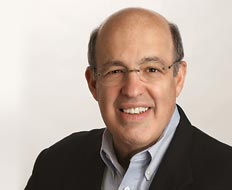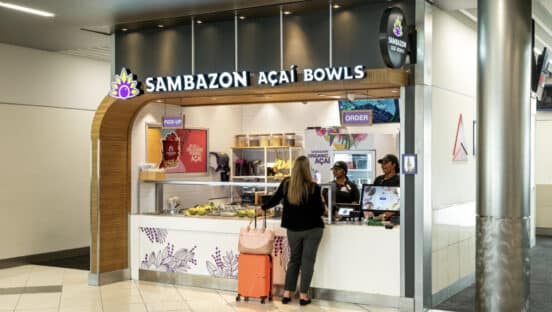When Phil Friedman stepped down as CEO of McAlister’s Deli, a sandwich concept based in Ridgeland, Mississippi, that he grew from 30 to almost 300 locations during his 11-year tenure, many of his friends and colleagues assumed the 65-year-old industry veteran had retired.
“Most of the people were asking, ‘How’s retirement?’” Friedman says. “I’m not retired.”
In fact, only a few months after he left McAlister’s, Friedman formed an acquisition company called Mississippi Restaurant Group and recruited Barry Canada—“the leading merger and acquisition guy in the South,” Friedman says—to help him find an emerging chain to buy.
Friedman was looking for a concept that was in a similar stage of its evolution as McAlister’s was when he took the helm there, but this time around he didn’t want to answer to anyone else.
“I wanted to be the principal, a major investor, have it be my company that was the acquisition company, versus going to work for other people,” Friedman says.
“I did have some offers to go work for some private companies, some big, some small. But I didn’t want to report to the board, I wanted to be the company.”
This desire to do it his way led Friedman to fund the acquisition search with his own money. Rather than raising a fund, he lined up investors who were interested in backing an acquisition once Friedman found a worthy restaurant chain.
“I had the good fortune, because of the success of McAlister’s, to [fund] it myself,” Friedman says. “It was really important to me to do it that way.”
A “big step in the march to Salsarita’s,” Friedman says, was attending the Restaurant Finance & Development Conference, which was held in Las Vegas in early November. It gave Friedman an opportunity to reintroduce himself to small-company investment bankers, including Carty Davis of Cypress Group.
At the time of the conference, Friedman was looking “pretty hard” at two other companies, both founder-owned, full-service concepts geared toward family dining. But when Davis presented him with the opportunity to acquire Salsarita’s, Friedman shifted his focus.
In Salsarita’s, a fast-casual, build-your-own burrito concept based in the Southeast, Friedman says he found his “prototype acquisition.” It’s a young company that was established in several markets but seemed to need the guidance of experience to reach its potential. Furthermore, the relatively young chain was still owned by its founder, Bruce Willette, a prerequisite for any company Friedman would consider acquiring.
This stipulation also had to do with Friedman’s desire to be his own boss.
“I like more of the raw concept that is ready to be managed than something that has been worked over,” Friedman says.
Salsarita’s had hired Cypress Group to find a buyer, and in the first round of bidding, Friedman was disappointed to come up short. (A group including Real Mex Restaurants CEO David Goronkin and Fortress Investment Group’s Joel Holsinger had bid $6 million, according to Restaurant Finance Monitor.) He felt he had lost a brand that matched the skills he had honed for more than 30 years in the restaurant industry, a brand that in many ways resembled McAlister’s back in 1999, when he became chief executive.
“At that time, [McAlister’s] had grown substantially, had franchised substantially, but the organization strains were getting to a point where the company could implode, because growth also requires a lot of work,” Friedman says.
What was needed, Friedman says, was “organization development, structure, and leadership.”
The same was true, in Friedman’s assessment, of Salsarita’s when he first made a bid for the company.
Founded in 2000, Charlotte, North Carolina–based Salsarita’s was in its 10th year, as was McAlister’s back in 1999, and had locations in 19 states, with most of its 82 locations concentrated in the Southeastern region of the country.
Friedman is quick to concede the complexity of the restaurant industry—“every business is a collection of details,” he says—and he operates under the motto that “all businesses have their own physics.” Still, with its similarities to McAlister’s and positioning in the vibrant category of fast-casual Mexican, Salsarita’s seemed to him to be the perfect chain for his next venture.
Needless to say, he was happy when he got another chance to buy the company.
“We jumped on it,” says Friedman, who would not reveal how much his company paid. “Let’s just say this is not an acquisition that is going to break any records.”
In the lead-up to taking over Salsarita’s, Friedman contacted Larry Reinstein, himself an industry veteran who, with his brother, had founded Fresh City, a chain of eateries based in Needham, Massachusetts. Like Friedman, Reinstein was looking for a new start in the restaurant business.
“I came to a point in the road where I wanted to move on and do different things,” Reinstein says.
“My brother and I were able to make a deal with the investment team [at Fresh Concepts, the parent company of Fresh City], and I was able to move on to the next venture, which I’m happy to do.”
Having grown up in the industry, Reinstein says, “it was just the right time to do something different. I really wanted to get on a national platform.”
After Friedman left McAlister’s, he and Reinstein had many discussions about combining powers. The two men had met years before and shared a love for the restaurant business and a sense of what it takes to cultivate a successful concept.
“We got along well from the beginning,” Reinstein says. “Phil represents a lot of what I think I represent: integrity, hard work, strong effort, passion for people and for products and for building great brands.”
[pagebreak]
Reinstein’s role in the acquisition process was as the details guy, analyzing Salsarita’s as a brand and its potential for growth. He says the chain’s position in the fast-casual segment, alongside both McAlister’s and Fresh City, was a big part of its appeal.
“That has huge upsides,” he says.
Like Friedman, Reinstein felt comfortable with Salsarita’s because he saw “a lot of linkages” between the concept and his former chain, Fresh City, which also competed as a fast casual and marketed itself as a fresh, authentic option in opposition to the stereotypical deep-fried menus of other counter-service concepts.
“In many ways, I feel like I’m positioned better than ever to work with Phil and create a sensational brand,” Reinstein says. “I feel like it’s a product of all things I’ve done all my life.”
Feeling rejuvenated by their new venture, Friedman and Reinstein, who was named COO of Salsarita’s, are now acquainting themselves with the company and fine-tuning a strategy that they hope will make Salsarita’s a national brand. The expansion plan centers on sinking deeper roots in existing markets.
“We believe it is always easier, more efficient, and smarter to grow in the markets where the consumer already knows you and to deepen the opportunities that are there,” Reinstein says. “We see ourselves ultimately continuing to grow everywhere in the United States. But we believe our best approach for right now is to get our [existing] franchisees to grow with us.”
Salsarita’s will open new franchise and nontraditional locations in the Southeast, Reinstein says.
“Of our 78 franchise locations, 20-plus are in nontraditional locations, in universities, in businesses, and in airports,” Reinstein says. “We see continual growth going on in that category, as well as in the traditional franchise locations.”
The emphasis on nontraditional locations, particularly college campuses, is a smart way to earn brand loyalty among young consumers, says Todd Semrau, owner of Atlanta-based Urban Eats Consulting Group.
“To keep a brand alive today, you have to win over the Gen Y market by keeping it fresh and edgy,” Semrau says. “Gen Y is all about fresh, sustainable food. They want to eat communal, ethnic food like Mexican food. But if you keep opening in strip malls, the concept starts to get watered down. Opening in nontraditional locations may give [Salsarita’s] an edge.”
As for corporate stores, Friedman says he wants as much as 20 percent of Salsarita’s locations to be company-owned. Friedman’s acquisition company owns two Salsarita’s locations, which it bought from Willette, the chain’s founder.
“From decades of experience, I believe that the franchisor who has skin in the game and is operating a meaningful number of company restaurants is … a partner in the business, not just an owner of the business,” Friedman says. “I prefer to be in the business, where we have to deal with the same problems that franchisees face.”
This approach, Friedman says, will help him understand the challenges confronting franchisees and allow corporate to test out new concepts in its own stores before thrusting them onto franchisees.
“We’re not going to put new products, procedures, or programs in the system that we haven’t worked out in our restaurants first,” Friedman says.
In an effort to get a better grasp on the company he just purchased, Friedman has been traveling around the country to meet with franchisees face to face.
“I very much believe in and rely on franchise relationships,” says Friedman, who visited eight franchisees in five markets in his first week of ownership. “I think [the franchisees] pretty well know there’s going to be a big change. That change is, we’re committed to their success. We, the owners, only win if the franchisees win.”
Meanwhile, the staff at Salsarita’s headquarters in Charlotte are also bracing for the changes that inevitably follow new ownership.
“Any organizational change has its challenges, and this is a good example of that,” says director of franchise administration Tim Carter, who has been with the chain since before the acquisition.
Carter says Friedman has challenged the administrative staff to take a hard look at how Salsarita’s can improve its existing franchisee-support system.
“They’re having us ask ourselves the hard questions,” Carter says. “Is this the best way to do it? How do we compare to others in the franchise community? Is there a smarter, more efficient way to deliver the world-class support that is expected of the national chain that we intend to be?”
The corporate staff understands that Friedman’s emphasis on introspection is a necessary part of growth, Carter says.
“I think of it as an analogy to a college football team,” he says. “If you’re a minor-league program and you want to make it to a national championship, you go and hire a coach who’s been there before.”
Having been there before, Friedman does not expect success to come fast. He projects Salsarita’s to hit a growth curve in about five years, which is about how long it took McAlister’s to hit its stride after Friedman took over.
Over the next two years, however, Friedman expects to grow by as much as 10 percent, which he calls “not significant.”
“We’re going to grow through franchising, so that means my role is to put together support and leadership systems to help people grow,” Friedman says. “So I can’t grow today faster than the organization is capable of.
“But as I increase the capabilities of the current franchisees, and the support system to help them develop their capabilities, and as I find new franchisees—we’re developing a multiplier effect,” he says.
With a reputation for taking brands national, Friedman is confident in his ability to grab more market share in the highly competitive, fast-growing category of fast-casual Mexican, just as he did in the deli sandwich category with McAlister’s.
“If I do everything right, we’ll get there,” he says.
If his timeline proves accurate, Friedman will be 70 years old when Salsarita’s gets “there.” But there is little indication that he plans to retire even then.
“I want to make this work,” says Friedman, referring to Salsarita’s. “But then I will be looking for other things.”







